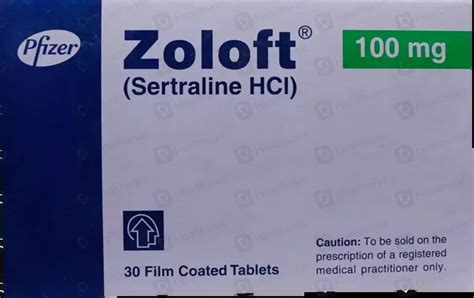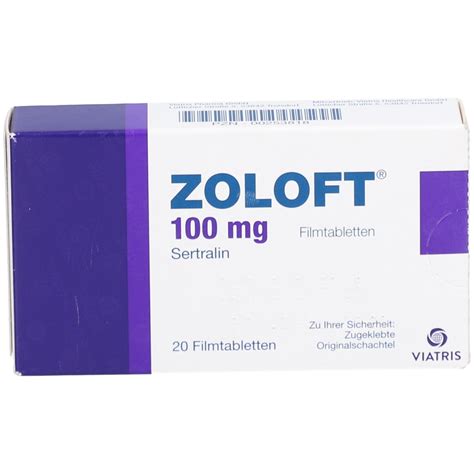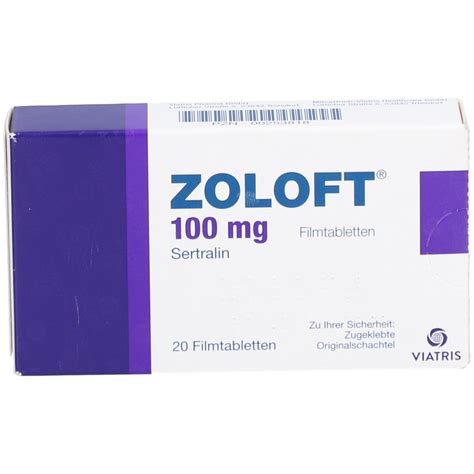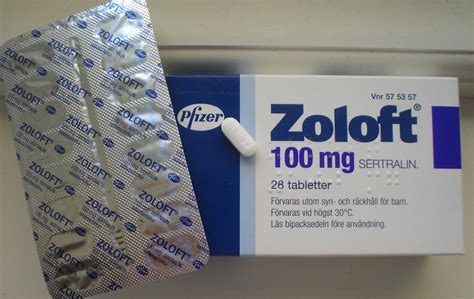Intro
Learn about Zoloft 100mg dosage, side effects, and interactions. Understand serotonin reuptake inhibitor benefits, depression treatment, and anxiety management with this guide, covering dosage recommendations and precautions.
The use of antidepressants has become increasingly common in modern society, with selective serotonin reuptake inhibitors (SSRIs) being one of the most prescribed types of medications for depression and anxiety disorders. Among these, Zoloft (sertraline) is a popular choice, known for its efficacy and relatively favorable side effect profile. For individuals considering or already taking Zoloft, understanding the appropriate dosage is crucial for maximizing its therapeutic effects while minimizing potential side effects.
Zoloft is used to treat a variety of conditions, including major depressive disorder, obsessive-compulsive disorder (OCD), panic disorder, post-traumatic stress disorder (PTSD), premenstrual dysphoric disorder (PMDD), and social anxiety disorder. The medication works by increasing the levels of serotonin in the brain, which helps to improve mood and reduce anxiety. Given its broad application, the dosage of Zoloft can vary depending on the condition being treated and the individual's response to the medication.
The standard starting dose for Zoloft is typically 50mg per day, but it can be adjusted based on the patient's response and tolerance. For many conditions, such as depression and OCD, the recommended dose range is 50mg to 200mg per day. The 100mg dosage is a common target for many patients, as it often provides an effective balance between therapeutic efficacy and side effect management. However, it's essential to follow the guidance of a healthcare provider, as they can tailor the dosage to the individual's specific needs and monitor for any adverse effects.
Zoloft 100mg Dosage Benefits

The benefits of taking Zoloft 100mg include its potential to significantly improve symptoms of depression and anxiety. Many patients report a noticeable reduction in their symptoms within a few weeks of starting the medication, although it may take up to 6-8 weeks to achieve the full therapeutic effect. Additionally, sertraline has been shown to have a relatively favorable side effect profile compared to other antidepressants, with common side effects such as nausea, diarrhea, and insomnia often being mild and temporary.
How Zoloft 100mg Works
The mechanism of action of Zoloft involves the inhibition of serotonin reuptake in the central nervous system, which leads to an increase in the amount of serotonin available for neural transmission. Serotonin is a neurotransmitter that plays a key role in mood regulation, appetite, sleep, and other functions. By enhancing serotonin activity, Zoloft helps to alleviate symptoms of depression and anxiety disorders.Zoloft 100mg Administration and Precautions

When taking Zoloft 100mg, it's crucial to follow the administration instructions provided by the healthcare provider. The medication is usually taken once daily, with or without food, to minimize gastrointestinal side effects. Patients should not stop taking Zoloft without consulting their doctor, as abrupt discontinuation can lead to withdrawal symptoms such as dizziness, headaches, and irritability.
Side Effects and Interactions
While Zoloft is generally well-tolerated, it can cause side effects in some individuals. Common side effects include: - Nausea and vomiting - Diarrhea - Insomnia - Drowsiness - Dry mouth - Increased sweatingSerious side effects are rare but can include suicidal thoughts, especially in young adults, and serotonin syndrome, a potentially life-threatening condition caused by excessive levels of serotonin.
Zoloft 100mg and Pregnancy

The use of Zoloft during pregnancy should be carefully considered, as with any medication. While there is evidence suggesting that sertraline can be safely used during pregnancy, the decision should be made in consultation with a healthcare provider, weighing the potential benefits against the risks. Studies have shown that SSRIs, including Zoloft, may increase the risk of certain complications, such as premature birth and low birth weight, although the absolute risk remains low.
Monitoring and Follow-Up
Regular monitoring is essential for patients taking Zoloft 100mg. This includes follow-up appointments with the healthcare provider to assess the effectiveness of the treatment and to check for any side effects. It's also important for patients to keep a record of their symptoms and any changes they notice, which can help in adjusting the dosage or switching to a different medication if necessary.Zoloft 100mg vs. Other Antidepressants

The choice between Zoloft 100mg and other antidepressants depends on various factors, including the specific condition being treated, the patient's medical history, and their response to previous treatments. Other SSRIs, such as fluoxetine (Prozac) and paroxetine (Paxil), may offer similar efficacy but differ in their side effect profiles and pharmacokinetics. Non-SSRI antidepressants, like bupropion (Wellbutrin) and venlafaxine (Effexor), work through different mechanisms and may be considered for patients who do not respond to SSRIs or experience intolerable side effects.
Conclusion and Future Directions
In summary, Zoloft 100mg is a commonly prescribed dosage for various psychiatric conditions, offering a balance between efficacy and tolerability for many patients. However, the treatment of depression and anxiety disorders is highly individualized, and what works for one person may not work for another. As research continues to uncover the complexities of brain chemistry and the mechanisms of antidepressant action, healthcare providers are better equipped to tailor treatments to the specific needs of their patients.What is the typical starting dose of Zoloft?
+The standard starting dose for Zoloft is typically 50mg per day.
Can I stop taking Zoloft without consulting my doctor?
+No, it's not recommended to stop taking Zoloft without consulting your doctor, as this can lead to withdrawal symptoms.
Is Zoloft safe to use during pregnancy?
+The use of Zoloft during pregnancy should be carefully considered and discussed with a healthcare provider, as it may pose certain risks to the fetus.
As we continue to navigate the complexities of mental health treatment, it's essential to remain informed and engaged in the process. Whether you're considering Zoloft 100mg as a potential treatment option or are already taking the medication, staying connected with your healthcare provider and being open about your experiences can significantly impact your journey towards better mental health. We invite you to share your thoughts, ask questions, or seek support from others who may be going through similar experiences. Together, we can work towards a deeper understanding of mental health and the role that medications like Zoloft play in improving our lives.
